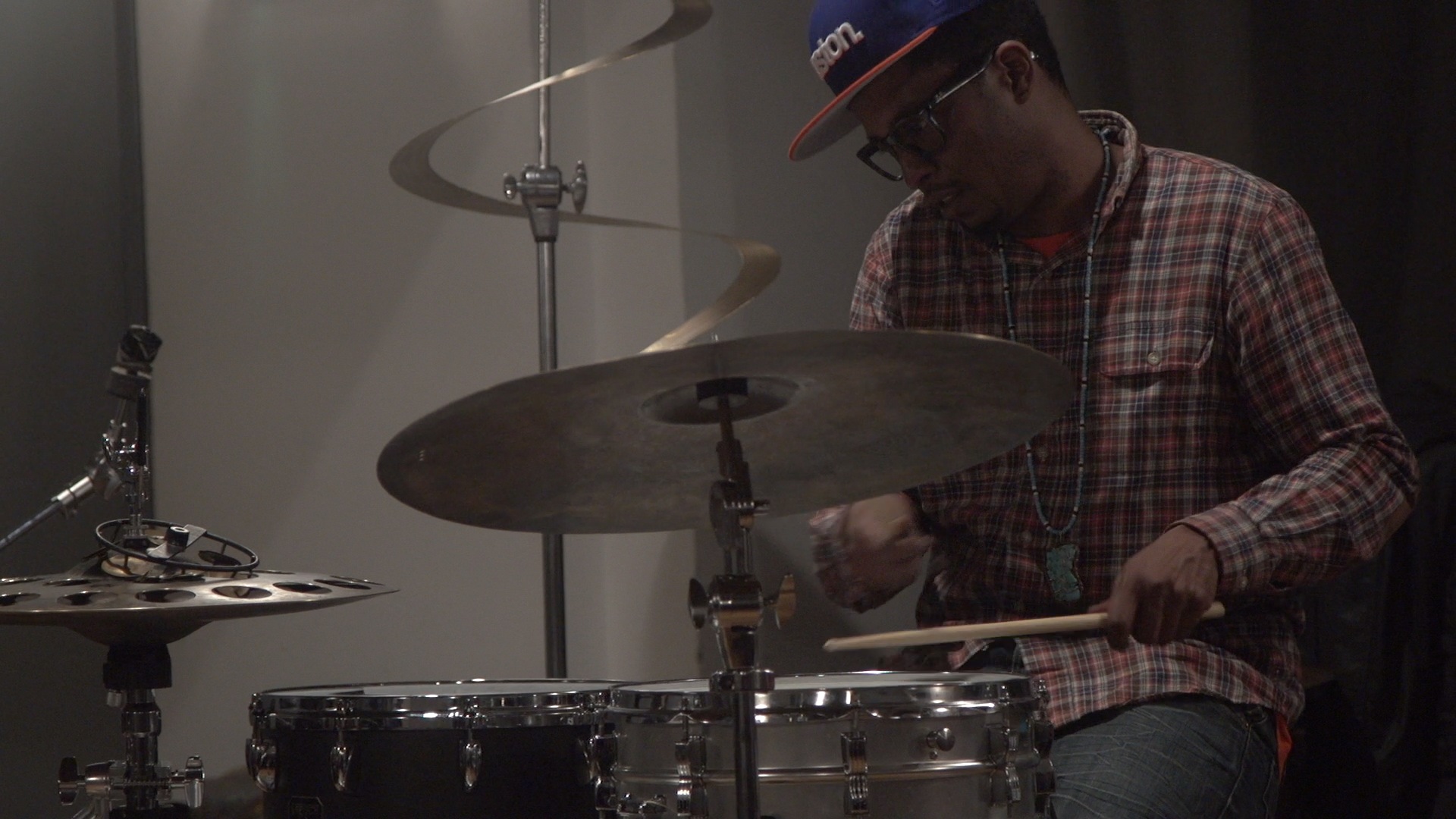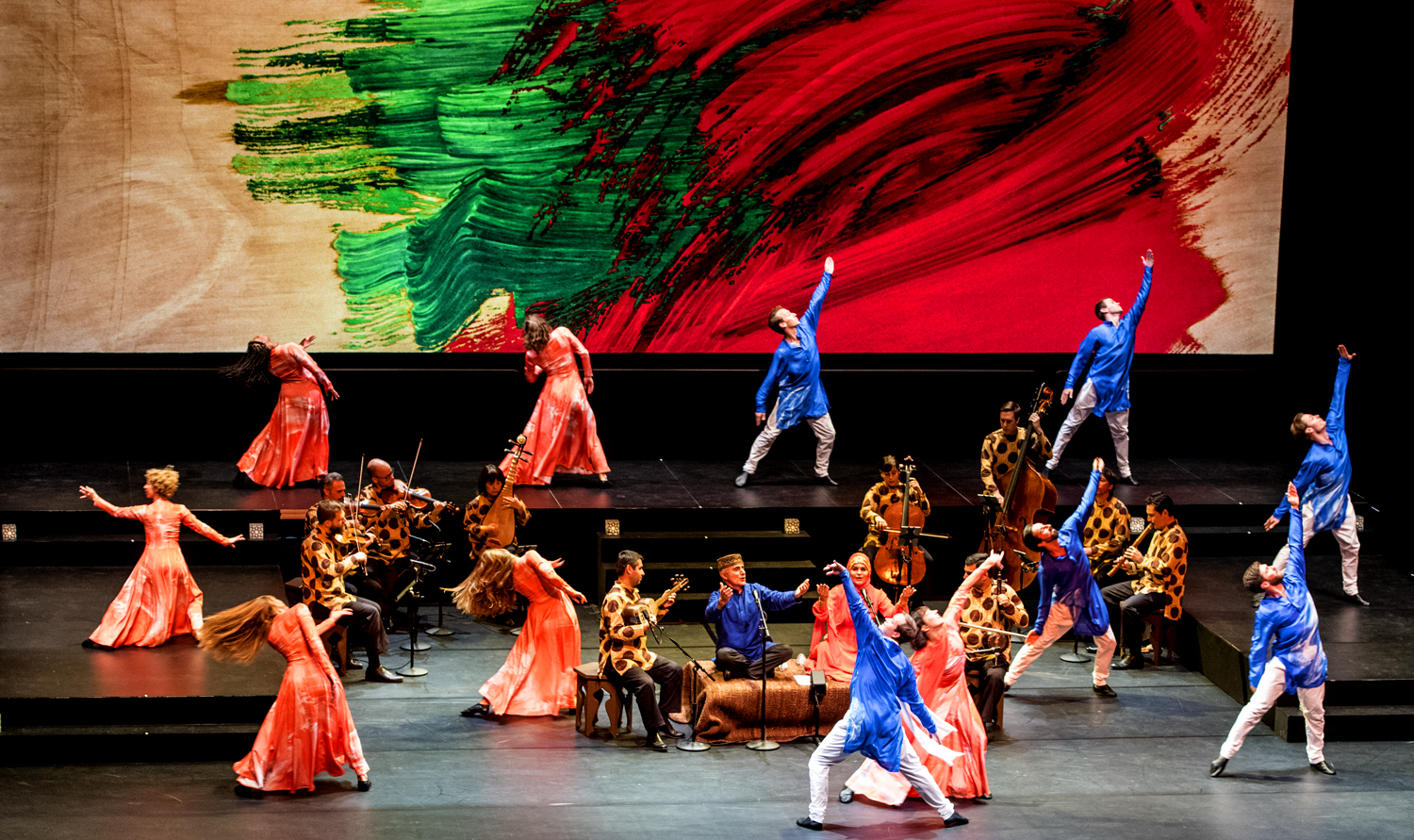As the crowd’s frustrated murmuring built into scattered but loud heckling of the empty stage, most of the entertainment came from the spectacle of venue staff running agitatedly back and forth and gesticulating to one another. At one point, the stage lights dimmed and then went back up. The crowd momentarily burst into applause when a stagehand walked into view. This unexplained delay left the audience in a jaded mood that was never entirely dispelled.
Finally emerging onstage, the Drumhedz opened with an expansive, ultra-loose composition that showcased Chris “Daddy” Dave’s virtuosic speed and precision on the kit, but failed to pull the audience into any sort of groove. It was uncomfortable watching the stage lights play frantically over a more-or-less stationary crowd, several of whom were absorbed in browsing Facebook. The tantalising rhythms of the band’s 2018 debut album did not translate into a consistent ability to engage a crowd.
The first genuine glimmer of life came when Marcus Strickland, fresh off another gig, ambled to the front, holding a tenor sax in one hand and a bass clarinet in the other like a pair of royal sceptres. Strickland’s provocative, stop-starting sax solo drew an immediate cheer – throughout the night, 170 Russell was at its liveliest when Strickland was onstage.
One piece got started with an elegant bebop-style bass clarinet solo from Strickland, embroidered with whimsical chirping and earwax-loosening elephant bellows. As soon as Strickland ceded the stage to the rest of the band, however, things went downhill: a formless mass of keyboard-work was followed by an interminable guitar solo that went on until the murmur of side-conversations among the audience threatened to rival the volume of the band.
Alongside Strickland, the hero of the night was vocalist Gene Moore, an accomplished and charismatic Texas-based gospel artist. Though Moore’s solo studio work is thoroughly characteristic of contemporary Christian music, onstage he became a shapeshifter, assuming a smooth hip hop style for one tune and then readily taking on an insistent, clarion vocal quality reminiscent of Muse’s Matt Bellamy for another. Strickland and Moore may not challenge Chris Dave’s pure technical mastery, but they proved to be the most skilful entertainers onstage. When neither was performing, the audience’s attention tended to stray.
During interludes, Dave was warm and amicable, acknowledging his discomfort about public speaking with a disarming earnestness. His best moment behind the kit came during the encores, with a hummingbird-fast kick pedal rhythm that built into a cascade of percussion worthy of Buddy Rich at his most exuberant. A rendition of Sam Cooke’s ‘A Change Is Gonna Come’, carried by Moore’s effortlessly bright and showy vocals, closed the set on a high note.
Though certainly not bad, Chris Dave and the Drumhedz delivered a set that didn’t measure up to what you might expect to see at the Jazzlab on a typical night, for one-quarter the price.
Highlight: Marcus Strickland’s show-stealing sax manoeuvres.
Lowlight: Standing awkwardly in the dark for 40 minutes.
Crowd favourite: ‘Black Hole’.







